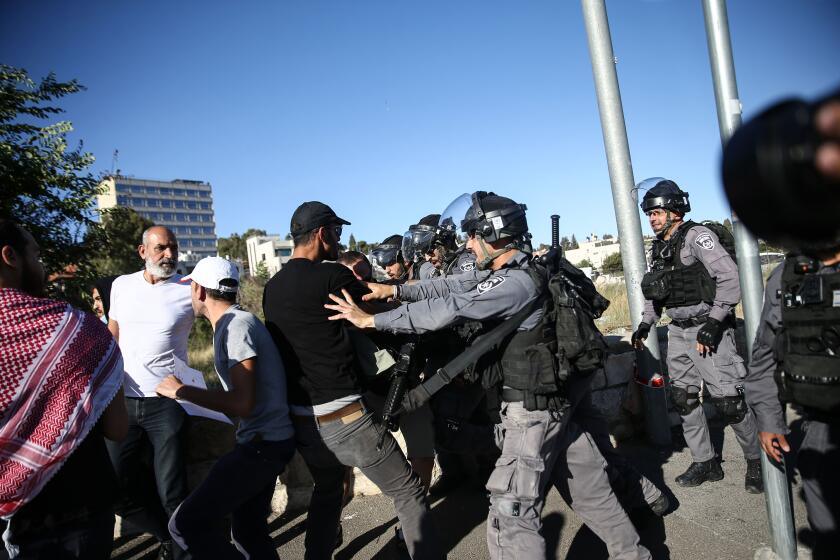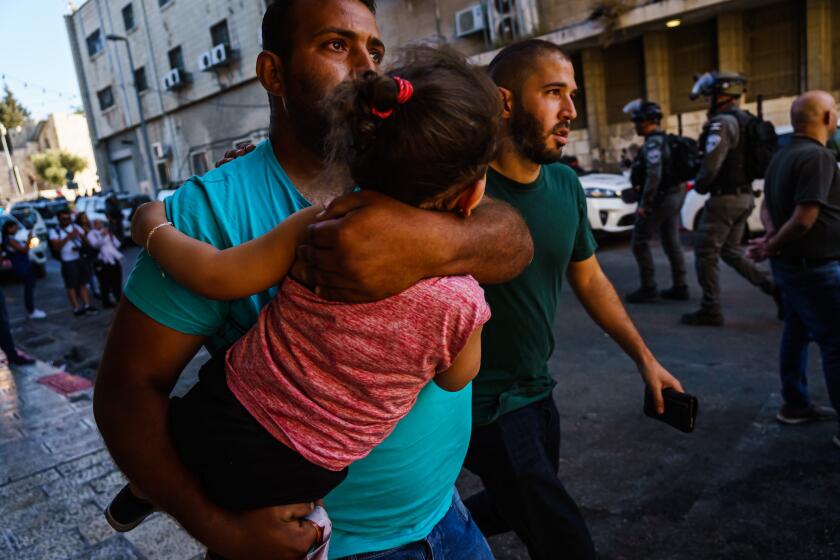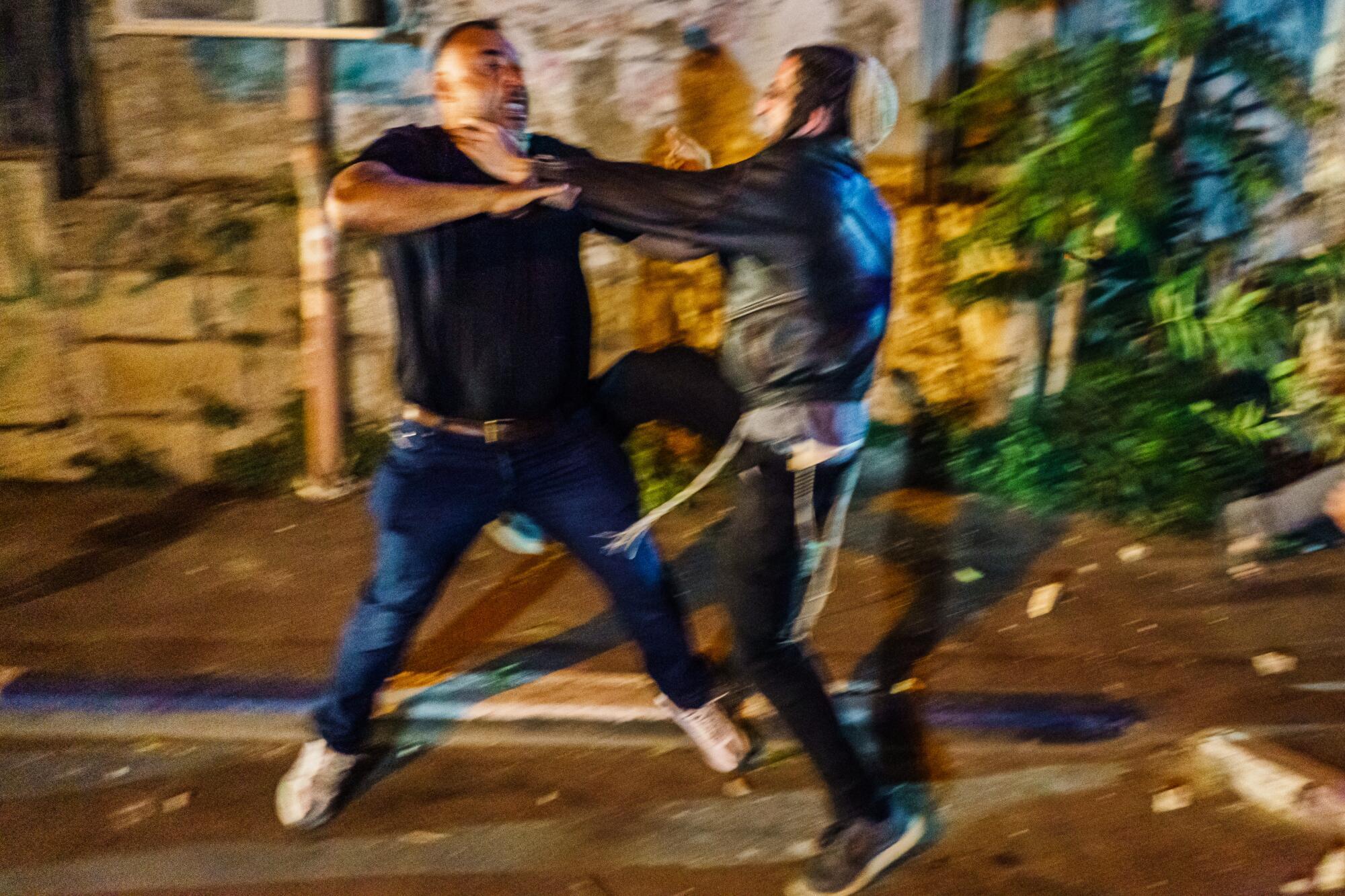
- Share via
JERUSALEM — Palestinians and Jewish settlers hurled stones, chairs and fireworks at each other overnight in a tense Jerusalem neighborhood where settler groups are trying to evict several Palestinian families, officials said Tuesday.
The threatened evictions fueled protests and clashes in the runup to last month’s 11-day war between Israel and Hamas and pose a test for Israel’s fragile new governing coalition, which includes three pro-settler parties but is hoping to sideline Palestinian issues to avoid internal divisions.
Israeli police and border officials said they arrested four suspects in the Sheikh Jarrah neighborhood. It was unclear who started the brawl. The officials said someone launched fireworks at houses and police forces and that “several Molotov cocktails were thrown and stones were thrown.” One woman was reportedly injured when she was hit in the back by a stone, police said.
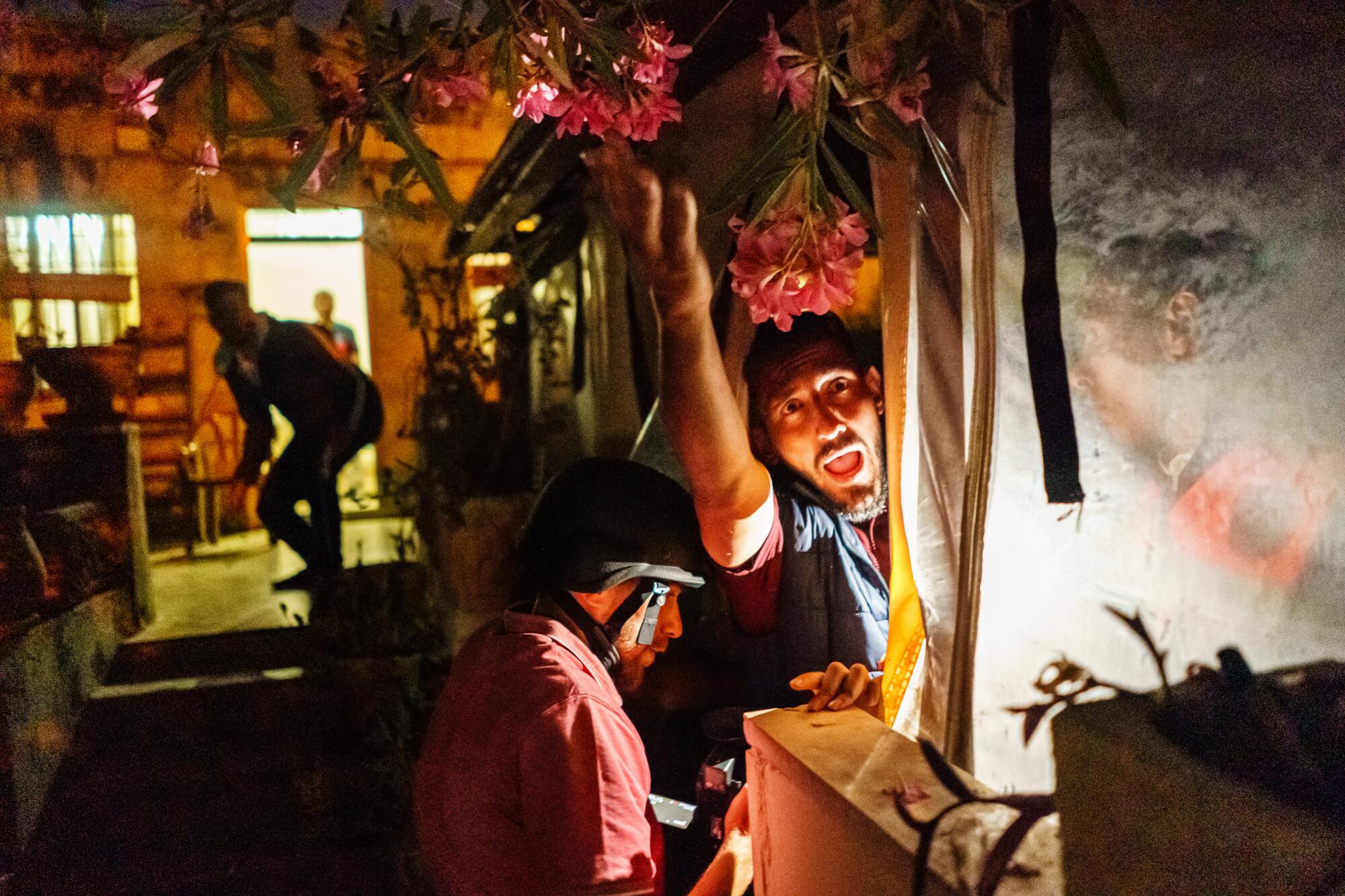
The Red Crescent emergency service said its crews treated 20 Palestinians, including 16 suffering from the effects of pepper spray and tear gas and others wounded by rubber-coated bullets. Two other people were wounded, including an elderly man who was hit in the head, the service said.
The Red Crescent said settlers threw stones at one of its ambulances, and Israeli forces sprayed skunk water on a second ambulance belonging to the service.
The eruption of violence is the latest friction in Sheikh Jarrah, where weeks of unrest captured international attention ahead of the 11-day Israel-Hamas war last month. The cease-fire took effect May 21, but the long-running campaign by Jewish settlers to evict dozens of Palestinian families continues.
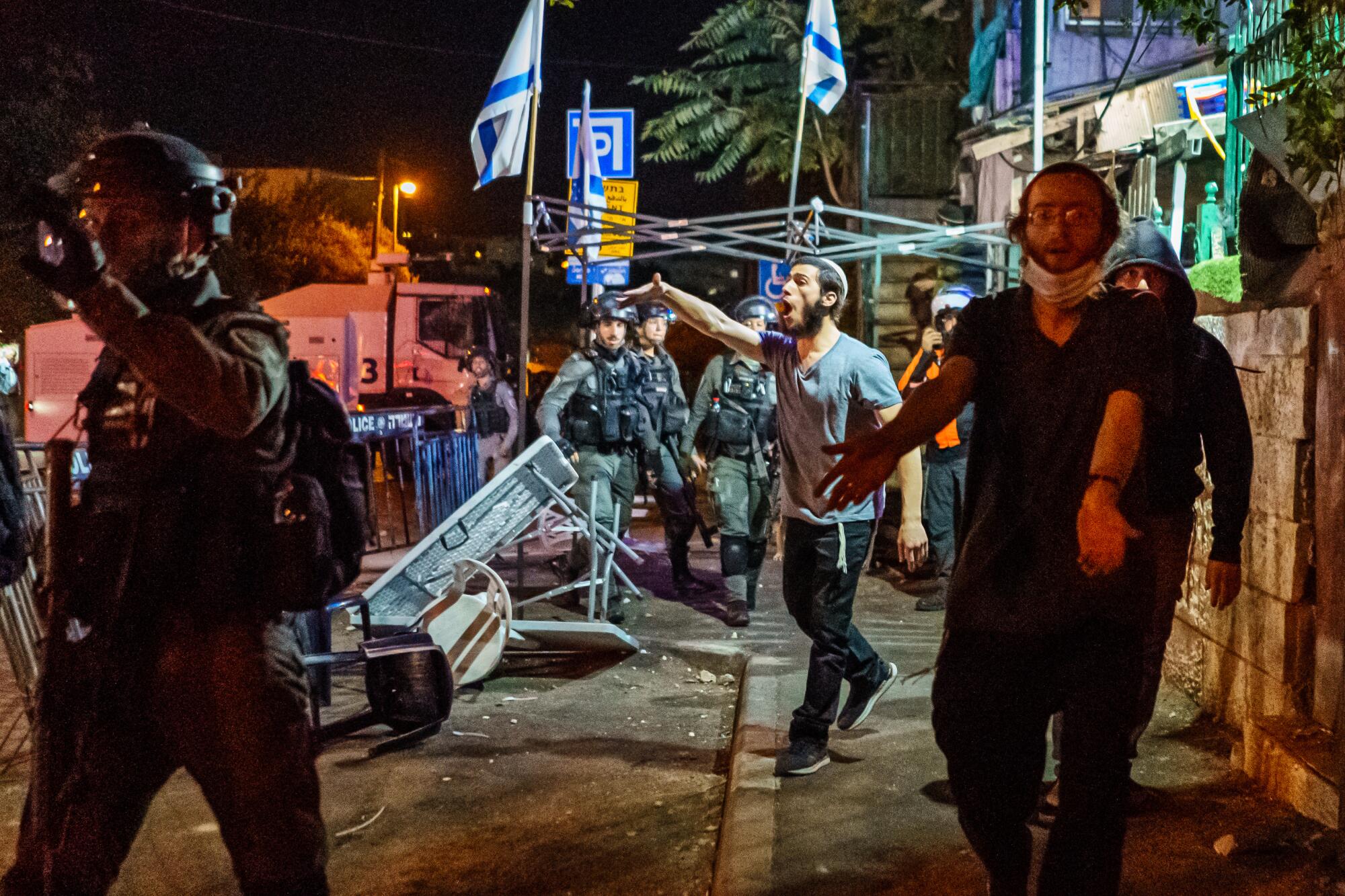
As the latest cease-fire continues to hold, competing claims to Jerusalem by Israel and Palestinians will likely fuel new fighting, both sides say.
And so the cycle of tension endures, in a stark early test for Israel’s new coalition government, which is just over a week old.
At the helm under a rotation agreement is Prime Minister Naftali Bennett, head of the right-wing Yamina party. In two years, he’ll be replaced by Yair Lapid, leader of centrist Yesh Atid. Leading the opposition is Likud leader Benjamin Netanyahu, ousted from the premiership after holding the post for 12 years.
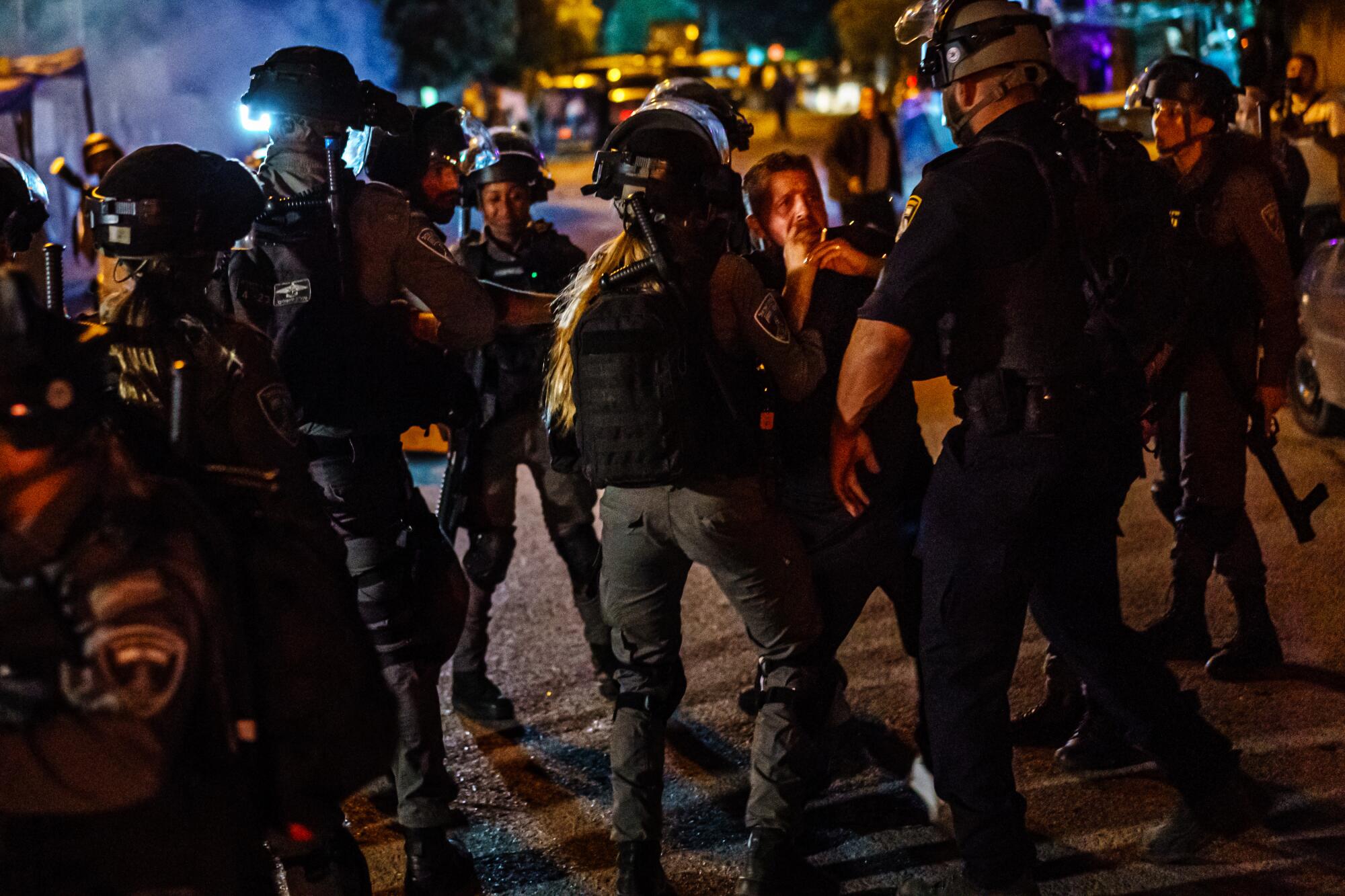
An intervention by Israel’s attorney general at the height of the unrest has put the most imminent Palestinian evictions on hold. But rights groups say evictions could still proceed in the coming months as international attention wanes, potentially igniting another round of bloodshed.
The Jewish settlers have been waging a decades-long campaign to evict the families from densely populated Palestinian neighborhoods in the so-called Holy Basin just outside the walls of the Old City, in one of the most sensitive parts of East Jerusalem.
The Israel-Hamas war has helped catalyze a newfound sense of Palestinian solidarity that could mark a new moment in the Middle East, activists say.

Israel captured East Jerusalem, home to sites sacred to Jews, Christians and Muslims, in the 1967 Mideast War and annexed it in a move not recognized internationally. Israel views the entire city as its capital, while the Palestinians want East Jerusalem as the capital of their future state.
The settlers say the homes are built on land that was owned by Jews prior to the 1948 war surrounding Israel’s creation. Israeli law allows Jews to reclaim such property, a right denied to Palestinians who lost lands and homes in the same conflict.
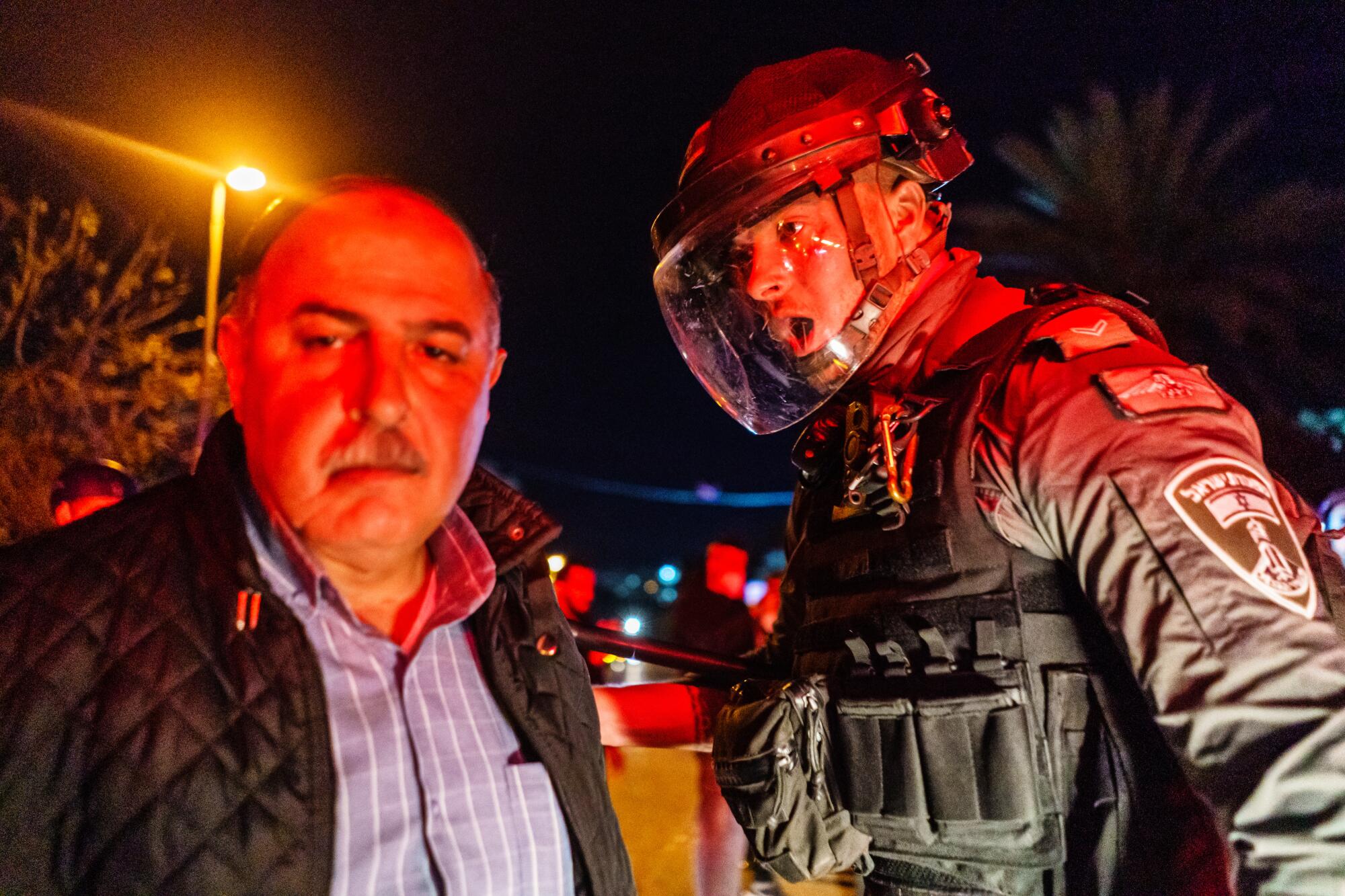
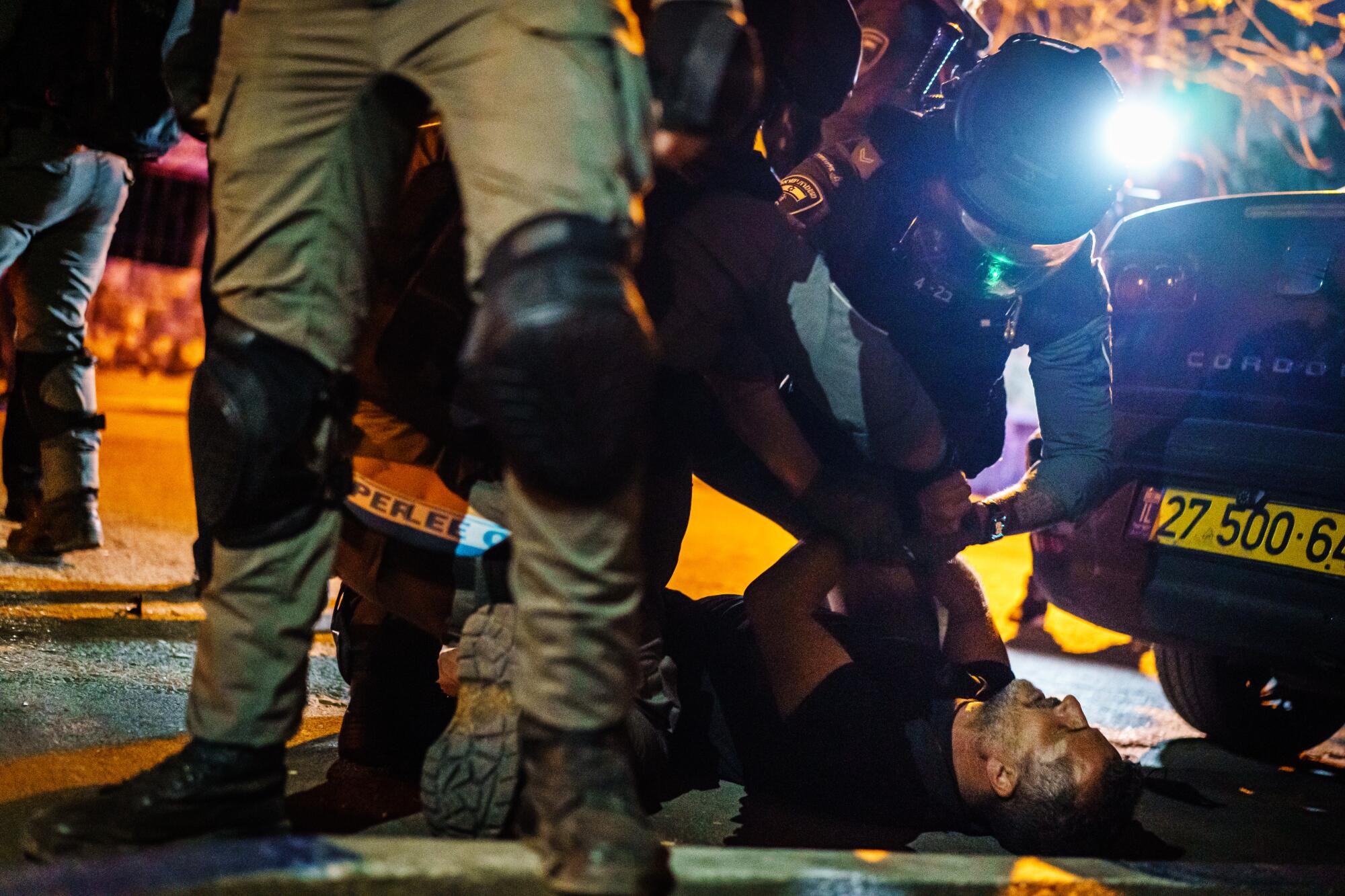
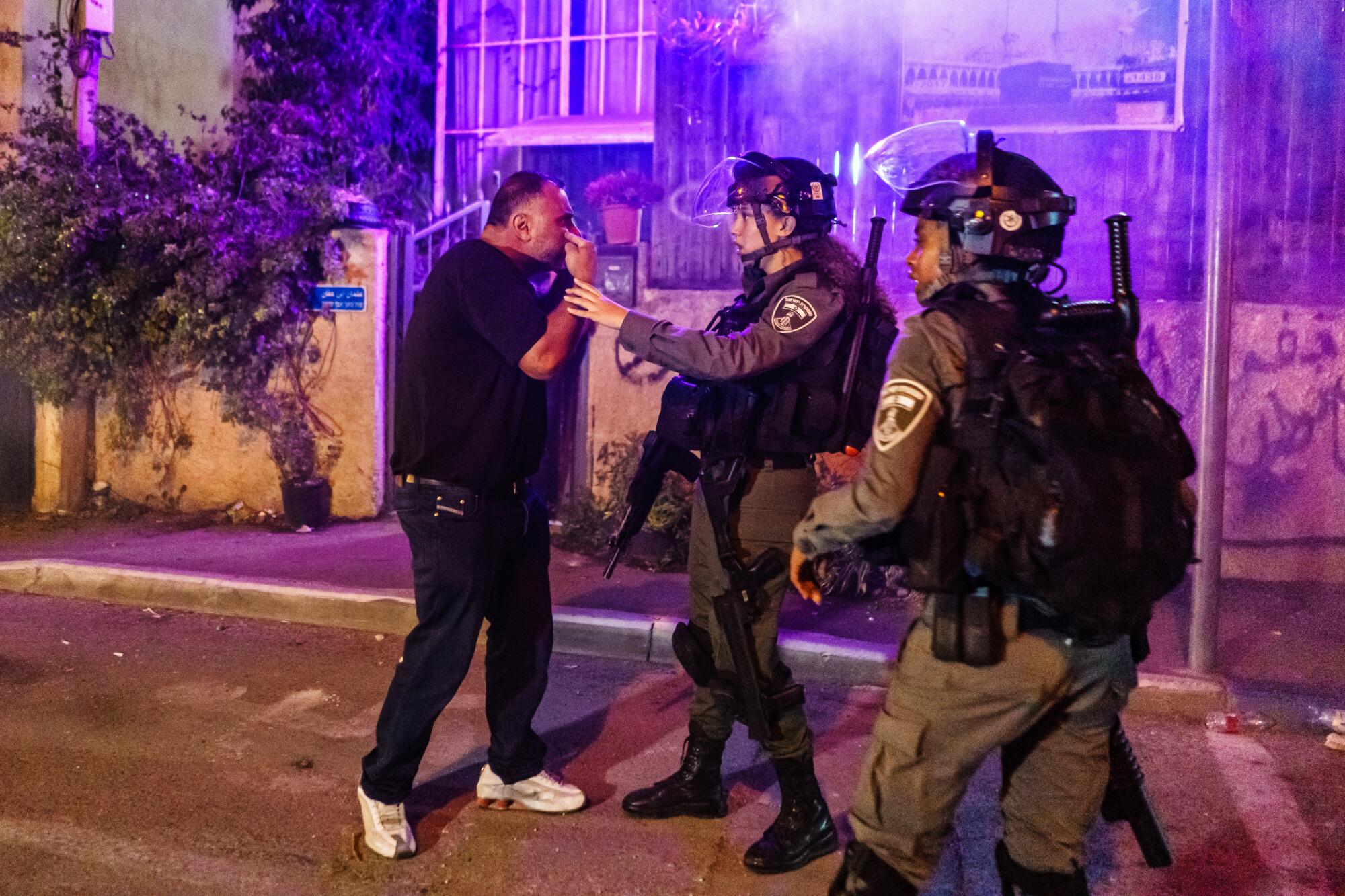
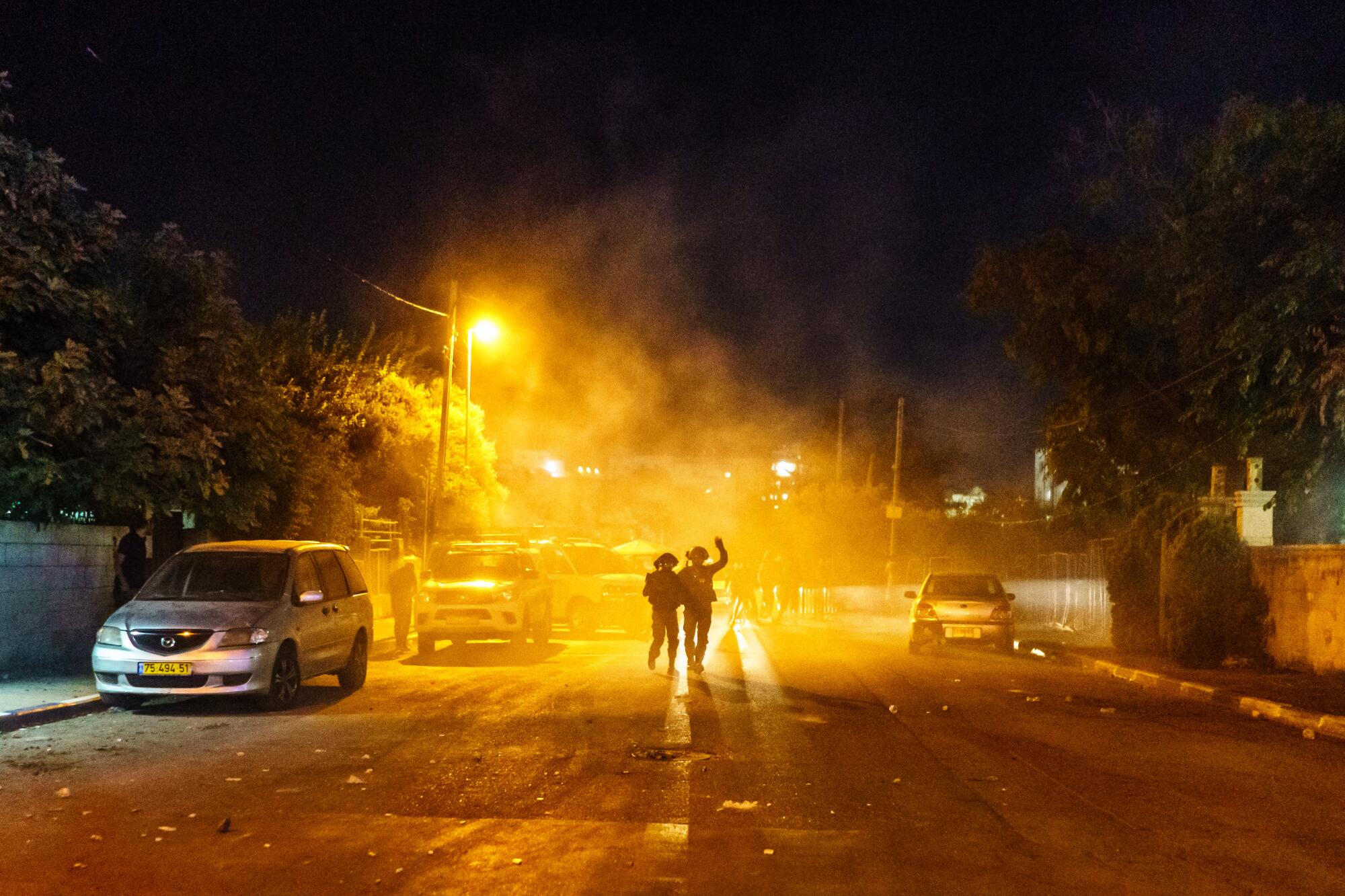
More to Read
Sign up for Essential California
The most important California stories and recommendations in your inbox every morning.
You may occasionally receive promotional content from the Los Angeles Times.
